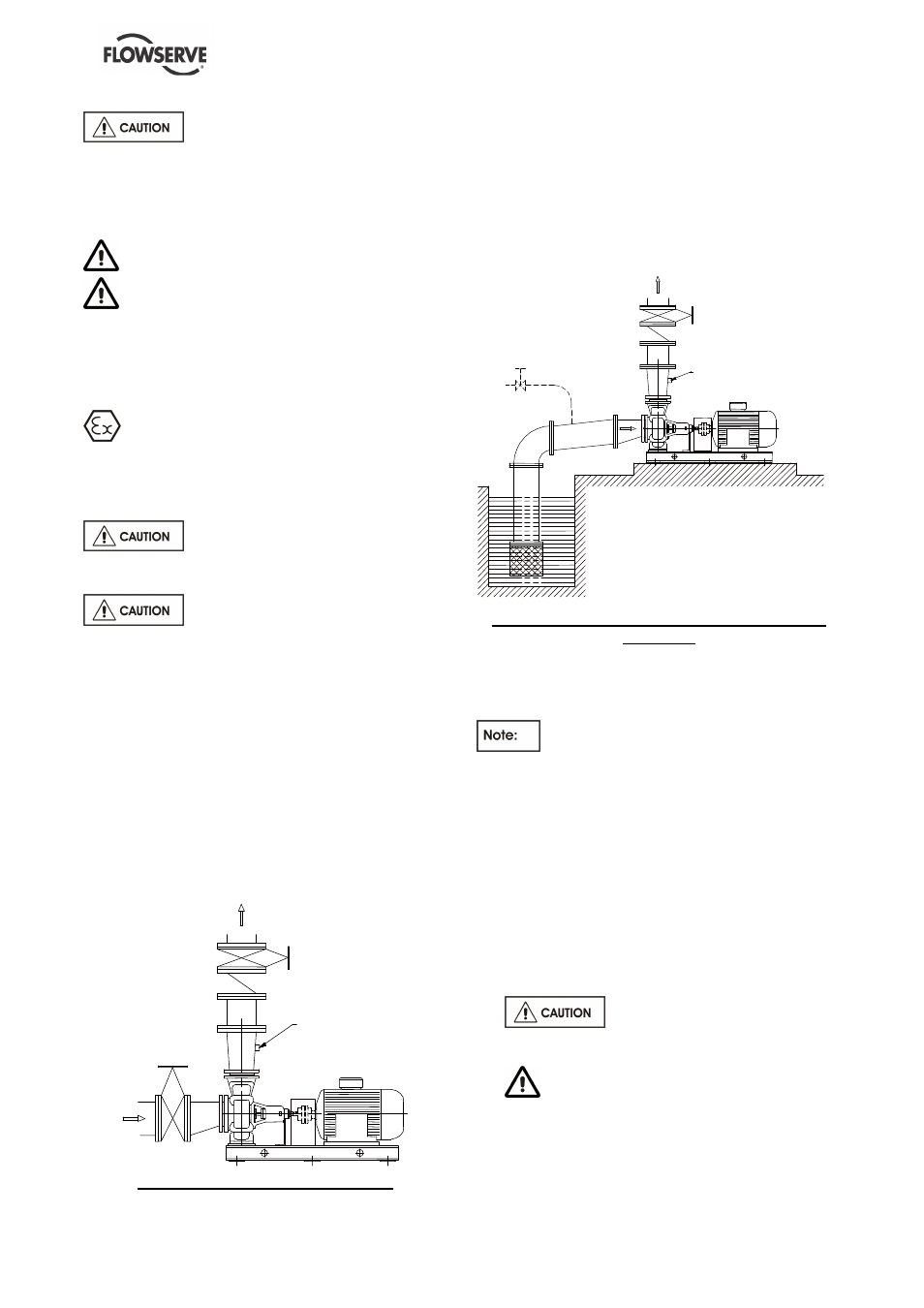2 guarding, 3 priming and auxiliary supplies, 4 starting the pump – Flowserve DS User Manual
Page 21

DS USER INSTRUCTIONS ENGLISH 71576283 - 02/13
02
Page 21 of 36
flowserve.com
If maintenance work has been carried
out to the site's electricity supply, the direction of
rotation should be re-checked as above in case the
supply phasing has been altered.
5.2 Guarding
Guarding is supplied fitted to the pump set.
If this has been removed or disturbed ensure
that all the protective guards around the pump
coupling and exposed parts of the shaft are securely
fixed.
5.3 Priming and auxiliary supplies
Where there is any risk of the pump being run
against a closed valve generating high liquid and
casing external surface temperatures it is
recommended that users fit an external surface
temperature protection device.
Ensure all electrical, hydraulic,
pneumatic, sealant and lubrication systems (as
applicable) are connected and operational.
Ensure the inlet pipe and pump
casing are completely full of liquid before starting
continuous duty operation.
These operations must be carried out by personnel
with approved qualifications.
5.3.1 Priming of a flooded pump
a) Close the discharge valve, fill the pump by
opening the suction valve. Let air escape by
removing the plug located on the piping.
b) The discharge pipe is headed and there is a by-
pass valve on the check valve, open slightly the
discharge valve and the by-pass of the check
valve.
c) When the pump is totally free of air bubbles,
replace the plugs.
Air escape
Priming of a flooded suction pump
5.3.2 Priming of a sump suction pump
* With foot valve:
a) Fill suction pipe and casing with liquid from an
independent source (pressure 1 to 2 bars or 15
to 30 psi).
b) Let air escape by removing the plugs located on
the piping.
c) When the pump is totally free of air bubbles,
replace the plugs.
Air escape
External source
Priming of a sump suction configuration with
foot valve
* Without foot valve:
Priming may be accomplished by means of venting
system.
Foot valves are not recommended when
the pumped liquid has suspended solid particles.
They may lodge between foot valve seat and
shutter.
5.4 Starting the pump
5.4.1 Bring controls and preparation before the
first starting and after each service call
Necessarily:
a) Check the tightening of the different plugs.
b) Check that the gland lightly tightens the packing
rings.
c)
Risk of seal ring overheating.
d) Check the direction of rotation of the motor.
Refer to the rotation arrow of the pump.
e)
Install all protection systems and more
particularly the coupling guard and the shield
grid of the bearing.
f) Open all suction valves (if existing).
g) Close the outlet valve and the bypass valve.
